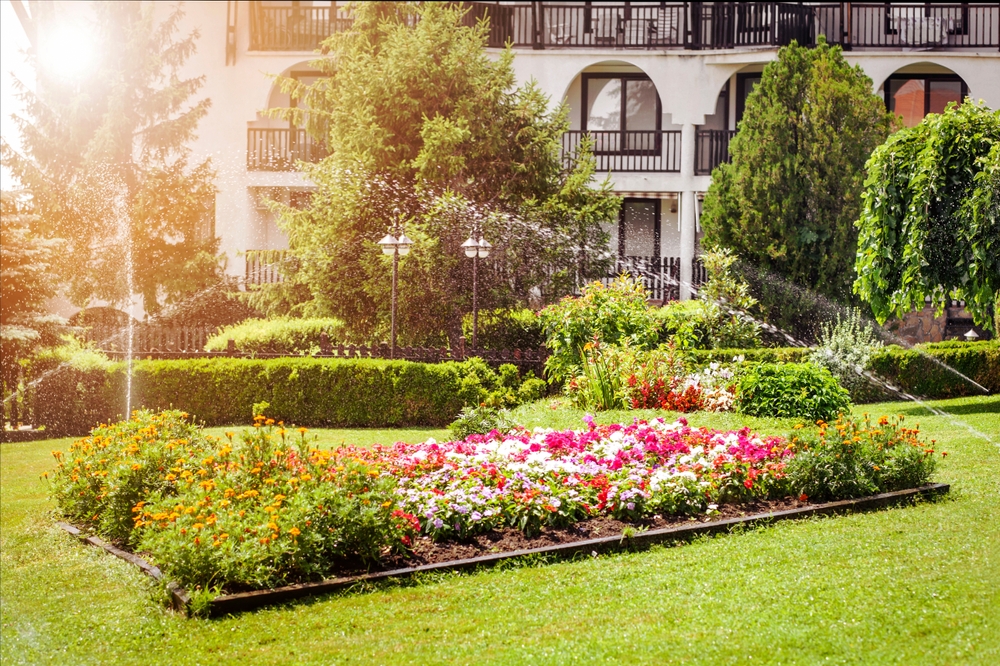How to Create a Sustainable Garden in Your Louisville Backyard

Creating a sustainable garden is not just an investment in your home’s aesthetic appeal but also a commitment to supporting the environment. In Louisville, Kentucky, with its four distinct seasons and rich soil, homeowners have an excellent opportunity to build eco-friendly gardens that thrive year-round. In this guide, we will walk you through the steps to create a sustainable garden, from design and soil care to plant selection and water management.
Understanding Sustainable Gardening
A sustainable garden aims to reduce negative impacts on the environment while creating a thriving ecosystem. This includes using fewer synthetic inputs, conserving water, encouraging biodiversity, and minimizing waste. By making thoughtful choices, you can cultivate a backyard space that not only looks beautiful but also supports pollinators, enriches the soil, and reduces your carbon footprint.
Planning Your Sustainable Garden
Assess Your Space
Begin by observing your backyard throughout different times of the day. Take note of areas that receive full sun, partial shade, or heavy shade. Also, note areas prone to water runoff or poor drainage.
- Sunlight Mapping: Identify which parts of your garden get morning versus afternoon sun.
- Soil Testing: Check your soil’s composition and pH level. Louisville’s soil tends to be clay-heavy, so knowing your soil’s properties will help determine the right amendments and plants.
- Wind and Microclimates: Understanding how wind and temperature fluctuations affect your yard can inform where to place delicate or drought-tolerant plants.
Sketch a Layout
Design your garden with sustainability in mind. Incorporate features like planting zones, pathways, and compost areas. Include:
- Raised beds for vegetables
- Native plant zones for low-maintenance areas
- Mulched paths to reduce erosion and water loss
Building Healthy Soil
Composting
Healthy soil is the foundation of a sustainable garden. Composting kitchen scraps and yard waste enriches your soil with nutrients and reduces landfill waste.
- What to Compost: Add vegetable scraps, coffee grounds, eggshells, leaves, and grass clippings.
- Avoid: Dairy, meat, and processed foods that attract pests.
- How to Compost: Create a designated compost pile or use a compost tumbler. Aim to balance “browns” (dry leaves, straw) with “greens” (fruit peels, grass clippings).
Mulching
Mulch helps regulate soil temperature, retains moisture, and suppresses weeds. Organic mulches like wood chips, straw, or shredded leaves decompose over time, further enriching the soil.
Soil Amendments
For Louisville’s clay-heavy soil, add organic matter such as compost, peat moss, or aged manure. These amendments improve drainage, prevent compaction, and encourage root growth.
Choosing the Right Plants
Focus on Native Plants
Native plants are adapted to Louisville’s climate and require less water, fertilizer, and maintenance. They also support local wildlife, including pollinators like bees, butterflies, and birds.
- Native Wildflowers: Coneflowers, Black-eyed Susans, and Milkweed.
- Native Shrubs and Trees: Eastern Redbud, Serviceberry, and American Holly.
Edible Plants
A sustainable garden can provide food for your family. Consider planting seasonal vegetables, fruits, and herbs.
- Spring: Lettuce, spinach, and radishes.
- Summer: Tomatoes, peppers, and cucumbers.
- Fall: Kale, carrots, and broccoli.
Grow perennials like strawberries, asparagus, and rhubarb for long-term harvests.
Companion Planting
Companion planting pairs plants that benefit each other. For example, planting basil near tomatoes can enhance growth and deter pests. Marigolds planted around vegetable beds can repel nematodes and aphids.
Water Conservation Strategies
Collect Rainwater
Installing a rain barrel at your home’s downspout is an effective way to collect and reuse rainwater. Louisville receives ample rainfall, and rainwater can supplement your irrigation needs, especially during dry periods.
Drip Irrigation
A drip irrigation system delivers water directly to plant roots, minimizing evaporation and runoff. It is ideal for garden beds and vegetable plots.
Watering Techniques
- Water Early: Water in the early morning to reduce evaporation.
- Deep Watering: Water deeply but less frequently to encourage deeper root growth.
Managing Pests Sustainably
Integrated Pest Management (IPM)
IPM involves monitoring and addressing pest issues with minimal chemical intervention. Sustainable pest control includes:
- Encouraging Beneficial Insects: Plant flowers like yarrow and dill to attract ladybugs and lacewings, which eat aphids.
- Handpicking Pests: Remove visible pests like caterpillars and beetles by hand.
- Natural Sprays: Use neem oil or insecticidal soap for severe infestations.
Avoid broad-spectrum pesticides that can harm beneficial insects and disrupt the ecosystem.
Supporting Biodiversity
Pollinator Gardens
Create designated areas for pollinators by planting nectar-rich flowers and avoiding pesticide use. Consider installing bee hotels or butterfly feeders to provide shelter and sustenance.
Habitat Creation
Incorporate bird feeders, bat boxes, and small water features to attract wildlife. Allow some areas of your garden to remain wild with native grasses and shrubs for cover and nesting.
Sustainable Hardscaping
Eco-Friendly Pathways
Choose permeable materials for paths and patios to reduce water runoff. Options include:
- Gravel or crushed stone
- Permeable pavers
- Mulched walkways
Repurposing Materials
Use reclaimed wood, recycled bricks, or stones from your yard to create garden borders and raised beds.
Seasonal Maintenance
Spring Preparation
- Clear debris and dead foliage from planting beds.
- Add compost and mulch to refresh the soil.
- Start planting cool-season crops and native perennials.
Summer Care
- Monitor soil moisture levels and adjust watering as needed.
- Remove invasive weeds.
- Harvest vegetables regularly to encourage continued growth.
Fall Cleanup
- Collect fallen leaves and add them to your compost.
- Plant cover crops like clover or rye to prevent soil erosion and replenish nutrients.
- Divide overcrowded perennials.
Winterizing
- Mulch heavily around the base of trees and perennials.
- Cover garden beds with burlap or frost cloth to protect tender plants.
- Clean and store garden tools to prevent rust.
Community and Education
Get Involved
Consider joining local gardening groups or sustainability workshops. Louisville offers community garden programs, farmers markets, and events focused on eco-friendly living.
Share Resources
Exchange seeds, cuttings, and gardening tips with neighbors. Collaborating with your community fosters stronger relationships and helps spread sustainable practices.
The Benefits of Sustainable Gardening
A sustainable garden not only enhances your home’s curb appeal but also creates a personal haven that supports ecological balance. By reducing waste, conserving water, and nurturing biodiversity, your garden becomes a testament to mindful living and environmental stewardship. Whether you’re growing vegetables, cultivating wildflowers, or creating habitats for wildlife, every sustainable gardening effort contributes to a healthier planet.
In Louisville, a city known for its vibrant natural beauty, your sustainable backyard can thrive as an example of how thoughtful gardening can create lasting impacts. With the right approach, you’ll enjoy fresh produce, flourishing flowers, and a lively outdoor space while preserving resources for future generations.
Need Energy Efficient Home Solutions in Louisville, KY?
We here at PrestonGREEN are a team of trusted and experienced wall contractors specializing in ICF walls. Our team is highly skilled in installing and constructing ICF walls, using the highest-quality materials. ICF is known to withstand natural disasters and is more energy efficient than a wood-proof home and comes available in sizes ranging from 6-inch to 12-inch. With ICF walls, our clients benefit from faster build times, considerable cost savings, and exceptional fire and sound resistance. Additionally, we deliver our firewood using a specialized machine, and we can set up the wood anywhere on your property, no re-stacking is required! Contact us today to learn more about what we can do for you!
